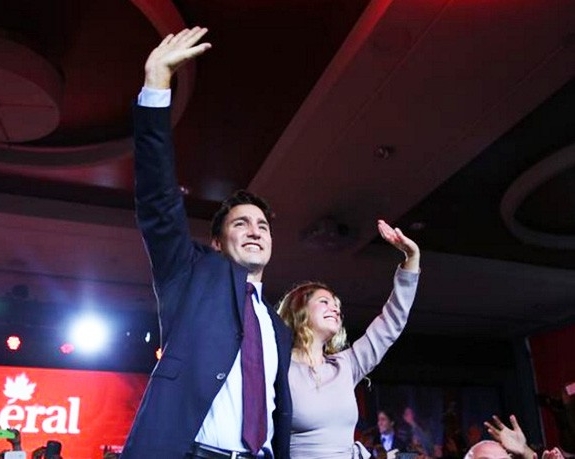article
What the failed caucus revolt says about the Liberal party
This article was originally posted in The Gazette.
A perfect storm of circumstances has given rise to a hollowed-out party apparatus — a shift seen in left-liberal parties across the world.
What has been widely described as a caucus revolt against the prime minister can be seen as evidence of the hollowness at the heart of the modern Liberal party.
The Hollow Parties, by Daniel Schlozman and Sam Rosenfeld, offers a critique of the weakened party cohesion, ideological fragmentation and capture by external interest groups that riddle the Republican and Democratic parties in the U.S. To some extent, the same problem of hollowing out seems to afflict Trudeau’s Liberals.
In the face of what current polling indicates will be a bruising defeat, a group of dissenting backbench MPs have been struggling to exert pressure on their leader, with others potentially resigned to defeat or attaching optimism to the prospect of promotion in a cabinet shuffle.
The morning of Oct. 27 saw the Liberals hold an extended caucus meeting in which two dozen backbench MPs vented their much-leaked view that it was in the best interest of the party for Justin Trudeau to step down. MPs left the meeting claiming that Trudeau was in a listening mood and that he vowed to reflect on their concerns. Yet just 18 hours or so later the PM indicated he would be staying on as Liberal leader.
Like many political observers, I am struck by what comes across as the inability of Liberals to exert meaningful pressure upon, let alone defenestrate, a leader who surveys show has become a drag on his party’s electoral prospects.
It reads to me as indicative of the organizational weakness of the current Liberal parliamentary caucus and wider party apparatus. Viewed as the party’s saviour in the wake of a devastating 2011 election result, Trudeau might have learned to take the unwavering loyalty of his backbenchers for granted — and apparently they, in turn, have not flexed their muscles of significant dissent for so long that they have nearly atrophied entirely.

The PM’s apparent blasé attitude to caucus management combined with the departure of several cabinet heavyweights elected in the Liberal majority of 2015 has created a perfect storm for a top-heavy and shallow organization.
The grassroots have arguably fared little better. In 2016, the party changed its membership model, forgoing fees to join in favour of an unpaid “supporter” category that it touted as part of a project to become “the most open political movement in Canada.” But it’s hard to see any popular political dimension to Trudeau’s Liberals, beyond the crested wave of an expertly executed “change” election campaign in 2015.
Since then, an increasingly technocratic cadre of campaign and policy professionals have huddled ever closer to big data and mathematical modelling and further from the regional power brokers and genuine popular enthusiasm of yesteryear. This shift has taken root in left-liberal parties across the world, as documented in Left Adrift, an excellent new book by George Washington University professor Timothy Shenk.
In a feat that, in my view, is still underappreciated, the contemporary Liberals’ data-driven, high-tech quest to maximize return on hyper-targeted investment squeezed two reasonably strong minority governments out of 33.1 per cent and 32.6 per cent of the popular vote in 2019 and 2021, respectively. Both popular vote shares are the lowest ever attained by a party that went on to form a government in Canadian federal politics.
This kind of ultra efficient vote distribution nonetheless signalled a fragile base overly reliant on narrow wins in the seat-rich Greater Toronto Area. It is now vulnerable to collapse, especially as the attrition of holding office for close to a decade reliably produces a desire for change among the electorate.
A more institutionally vigorous Liberal party would have made it clear to Trudeau some time ago that his position was untenable without either wholesale changes in personnel and approach in the PMO or a drastic uptick in polling numbers. Trudeau hasn’t snuffed out the animus in the parliamentary Liberal ranks, and continued public dissent means his position likely isn’t sustainable.
Either way the party apparatus appears to be in need of a root-to-branch overhaul.